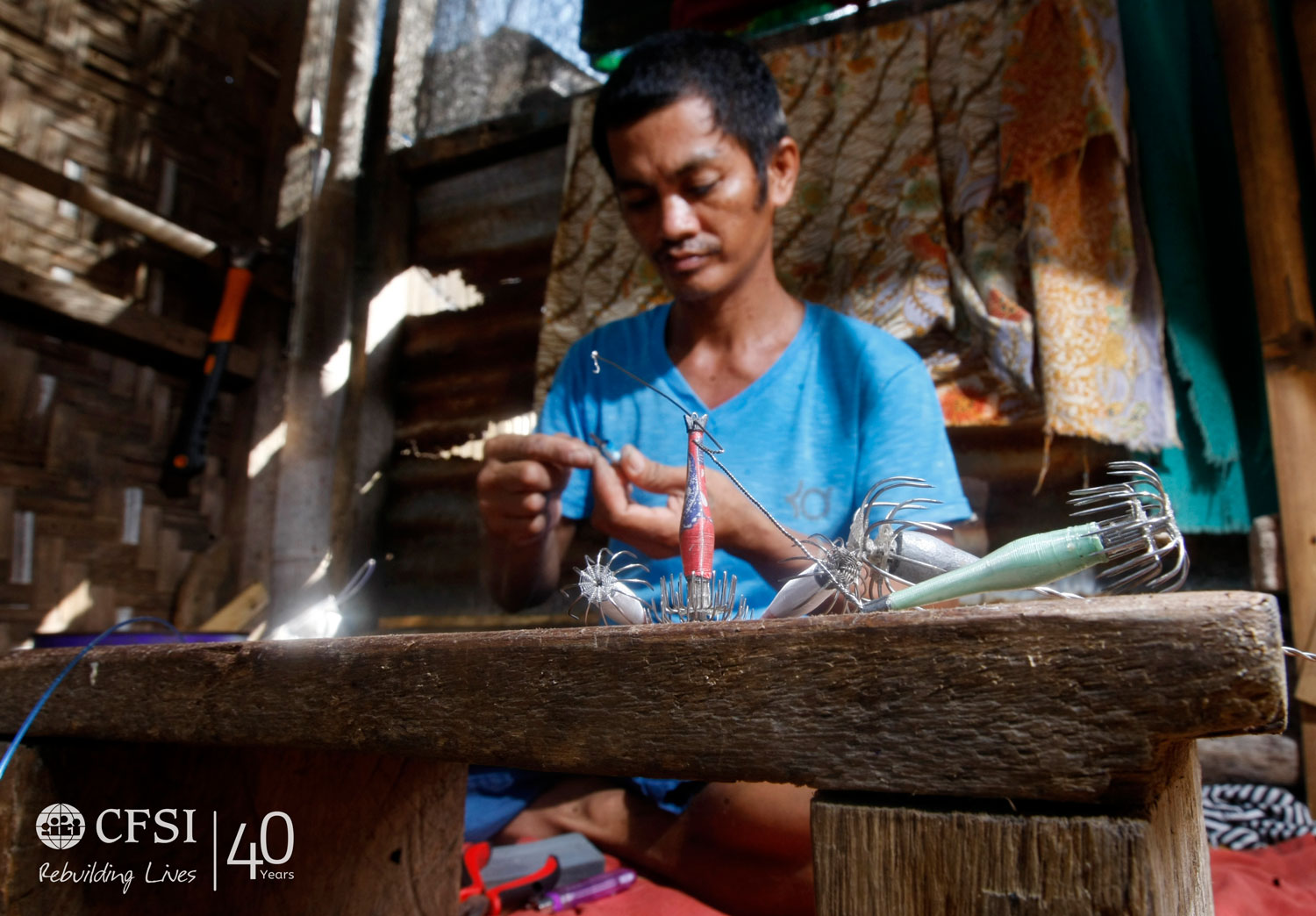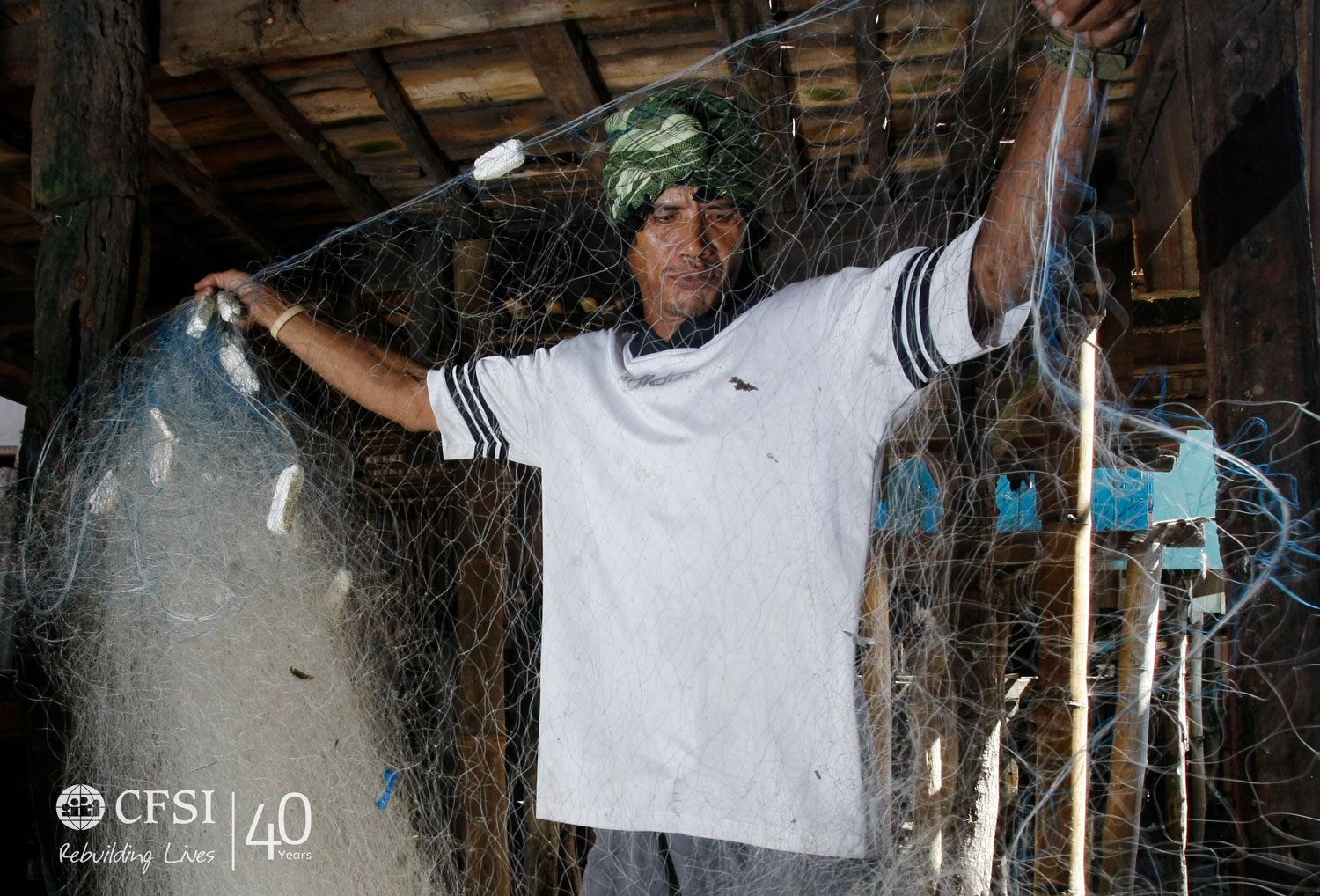Since the Zamboanga Siege in 2013, Community and Family Services International (CFSI) has assisted nearly two thousand vulnerable households, including the Sama Bajau indigenous group and Internally Displaced Persons (IDPs) in Zamboanga City, Philippines. The assistance provided include, but were not limited to, livelihood support packages. Aside from aiming to help people rebuild their lives, CFSI also strives to mark a positive impact to the environment through environmentally sustainable livelihood initiatives.
In 2019, the Sama Bajau Capacity Strengthening Project (SBCSP) was implemented to better protect the Sama Bajaus from being at risk of statelessness. One of its project components involved the capacity building of Sama Bajaus on environmentally sustainable livelihood practices and the provision of livelihood starter kits.
The identification of livelihood kits underwent a consultative process with the beneficiaries. They were asked to draft livelihood proposals based on their needs and strengths, and were then provided with appropriate training.
Since the Sama Bajau beneficiaries mainly get their source of livelihood from the sea, CFSI in partnership with the Bureau of Fisheries and Aquatic Resources (BFAR) Region IX and the City Environment and Natural Resources Office (CENRO) provided training on relevant environmental laws and eco-friendly income-generating practices. Topics included the law on fishery, proper waste disposal, recycling, and how Sama Bajaus can contribute to the sustainability and preservation of aquatic resources.
As a result of the training and awareness-raising activities, the beneficiaries shifted to more sustainable practices. Among them was Lito Dogoy, a maker of fishing equipment like fishing hooks, squid jiggers, and bait. After attending the awareness-raising on environmental sustainability, he started using plastic wrappers and foil of milk and junk foods in making squid jiggers which he sells for Php50.00 (USD1.00) each among fisherfolks in the area.
“Natutunan ko po na kahit basura na ay pwedeng pwedeng pagkakitaan. Tulad po nitong mga pinanghuhuli ng pusit at isda, konti lang ang puhanan ko rito pero malaki ang benta. (I realized that there is income from the garbage. I only needed a small capital to create fish baits and squid jiggers out of recyclable plastics, but the net income was huge.),” shared Lito.
Lito Dogoy makes fishing hooks and squid jiggers out of recyclable plastic materials. He sells it to the fisherfolks of the Sama Bajau community in Zamboanga City, Philippines for Php50.00 (USD1.00) each.

Lito Dogoy makes fishing hooks and squid jiggers out of recyclable plastic materials. He sells it to the fisherfolks of the Sama Bajau community in Zamboanga City, Philippines for Php50.00 (USD1.00) each.
Fisherfolk Abdulla Alaji also learned the proper way to net a fish after attending series of training.
“May [kaalaman] na rin po ako ngayon sa kung anong net ang magandang gamitin sa pangingisda para po hindi makahuli ng maliliit pa at masigurado na marami pa ring isda sa dagat sa mga susunod na taon. (Now, I know the prescribed net sizes that will avoid catching the immature fishes. Using the proper fishnets will ensure that more fish will grow in the years to come.),” shared Abdulla.
For his livelihood support kit, Abdulla proposed a set of nets with the standard sizes. Living on the sea, he also built a net under his house of stilts to catch the plastic waste materials and prevent from littering the sea.
Abdulla Alaji is fisherfolk in Brgy. Arena Blanco in Zamboanga City, Philippines that practices proper fish netting to contribute to preserving marine life.

Abdulla Alaji is fisherfolk in Brgy. Arena Blanco in Zamboanga City, Philippines that practices proper fish netting to contribute to preserving marine life.
Both Lito and Abdulla are still using the livelihood kits they have received up to now. Lito also ventured fishing to expand their sources of income and provide better to his family.
The stories of Lito and Abdulla are proof that people can make a living without harming the environment. Everyone has a role to play in caring for the environment and sustaining the resources for the benefit of the future generation. #

